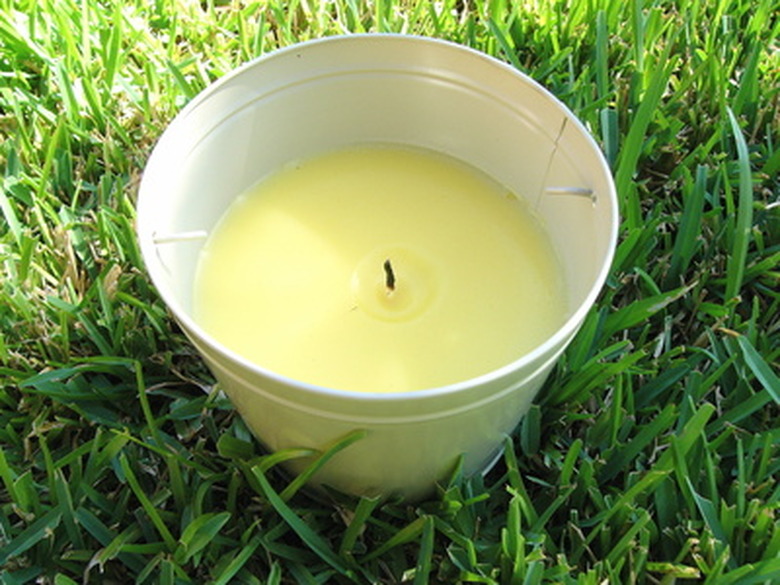Citronella Plant Uses
Citronella is a tall tropical grass closely related to lemongrass. It's notable for its citrusy scent and insect-repellent oil. Unlike lemongrass, citronella grass is inedible and has an unpleasant taste. Originally from Asia, this grass has become invasive in other hospitable climates, and should be grown only with care. The citronella plant and its oil work well in a number of uses around the home.
Topical Insect Repellent
While citronella grass does not act as an insect repellent in the pot, its crushed leaves or oil from those leaves work well to discourage mosquitoes and other small flying insects. Iowa State University recommends applying the oil directly to the skin or clothing, but notes that some people may be allergic to this plant. Test for an allergy to the citronella oil by applying it to the inner forearm a day or so before using it as a topical repellent.
Head Lice
According to the National Institutes of Health, extracts of the citronella plant are also effective against head lice. In a double blind clinical study using citronella oil and a placebo, children treated with citronella had a significantly lower chance of louse infestation and of reinfestation later. Rubbing citronella oil or crushed leaves on the hair or on the fur of a pet can help reduce the chance of lice coming from an infested person or animal.
Anti-Barking
Citronella can also be used in automatic anti-barking collars to discourage noisy dogs, according to the Cornell Chronicle. In a study using shock collars and collars which automatically sprayed the dog with citronella when noise was detected, citronella was more effective. The unfamiliar smell seems to be less tolerable than a shock, and stops barking faster. It also offers the pleasant side effect of reducing skin and fur odor in dogs.
Aromatherapy Scents
While citronella is best known for its insect-repellent properties, it can also be used in aromatherapy to eliminate fatigue, alleviate headaches and improve energy levels. Both the essential oil and the crushed leaves are effective, though the pure oil is a little stronger. According to the Essential Oil Database, good quality citronella has a distinct "grassy" scent with hints of lemon or citrus.
